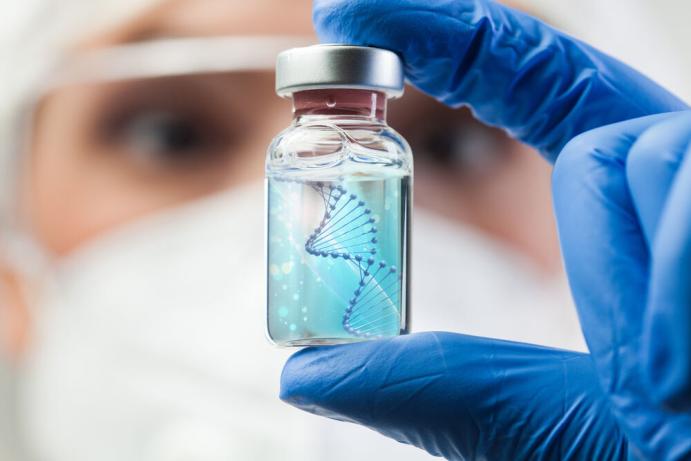Monday, January 12, 2026
Key Takeaways
- Adult stem cells are found in tissues like bone marrow and fat, where they help maintain and repair specific parts of the body.
- These adult mesenchymal stem cells are widely used for orthopedic problems such as joint pain and soft tissue injuries.
- Pluripotent stem cells are highlighted as a broader option when people are dealing with multi system or complex chronic health issues.
Cells are life’s building blocks. Stem cell therapy uses these natural healers to regenerate and restore damaged tissues.
Adult stem cell therapy is one of the most common stem cell treatments accessible today. Here’s a closer look at what it does and how it fits into the bigger picture of stem cell therapy.
What is Adult Stem Cell Therapy Good For?
Adult repair stem cell therapy uses mesenchymal stem cells (MSC) collected from the umbilical cord. It promotes the healing process of skin, ligaments, cartilage, muscles, tendons, and other vital structures.
Activating adult repair stem cells can be a natural process. Regular physical activity combined with a good diet supports stem cell health. But if you prefer a boost, specific therapies can help enhance stem cell function.
The more stimulated stem cells, the higher their numbers at the injury site. It can help expedite healing, ease pain, and improve overall function. Read on to learn more about its benefits, procedures, and applications.
3 Key Facts About Adult Stem Cell Therapy
We’ve listed 3 facts about adult stem cell treatment and its counterparts to help you find personalized solutions.
1. Stem Cell Types
Stem cell therapy uses three main types of stem cells: multipotent, hematopoietic, and pluripotent.
Multipotent
Adult stem cells are the body’s built-in repair team in general. Multipotent or mesenchymal stem cells (MSCs) work in targeted departments. MSCs are isolated adult stem cells that differentiate into specific cells, including bone, cartilage, and fat.
The body doesn’t produce many of these tissue-specific cells. For instance, you’ll require pancreatic stem cells to help repair damaged pancreas. They also age along with the donor. Thus, they become less potent, leading to slower healing and prolonged recovery times.
Hematopoietic
Hematopoietic stem cells are the body’s blood cell factory. Collected from the bone marrow, these cells can help treat blood-related and immune system issues.
The US Food and Drug Administration (FDA) only approves hematopoietic stem cell transplants (a.k.a. bone marrow transplants) as of today. Other stem cell treatments are still experimental and offered through clinical trials or under compassionate use programs.
Pluripotent
Pluripotent stem cells, or embryonic stem cells, are the youngest stem cell type used in regenerative medicine today. These stem cells derived from donated blastocysts (i.e., early-stage embryos) can differentiate into over 200 specialized cells.

2. Stem Cell Treatment Procedures
Stem cell adult therapy collects (i.e., through liposuction or blood draw) and re-injects MSCs from and into your body. Though it can be effective, it can cause discomfort and pain.
The process triggers inflammation as your body responds to the treatment. For liposuction, researchers identified the most common long-term issue is uneven, lumpy contouring.
Exercise caution when choosing treatment or provider. Adult stem cell therapy in Mexico, for instance, has been recently linked to hazardous practices. Investigations uncovered infections after receiving embryonic stem cell injections at poorly regulated clinics.
Some clinics also utilize frozen umbilical cord stem cells from third parties. Thawing kills most of these cells, rendering treatments ineffective.
At Stemaid, we’ve been cultivating pluripotent stem cells in our lab for over 20 years. They don’t age or die. They’ll enter and exit your body, leaving no risk or complication.
3. Stem Cell Therapy Applications
Adult stem cell therapy is limited only to repairing bone, cartilage, tissues, and muscles. Meanwhile, hematopoietic cell treatments can help fight blood diseases like leukemia, multiple myeloma, and lymphoma.
Both these types reside in specific microenvironments or “niches” within tissues. Thus, their regenerative capabilities are often restricted to the tissue or organ from which they originate.
Pluripotent stem cells, on the other hand, can help address diverse medical conditions. These include COVID-19, early cancer treatment, skin conditions, spinal cord problems, degenerative diseases, and more.
Experience chronic pain relief or manage your existing condition at Stemaid. Our comprehensive care integrates assessment, testing, detoxification, restorative IVs, and custom nutrient protocols to optimize healing outcomes.
Read our client’s success stories, or book your free consultation today.
Disclaimer: Stemaid doesn’t treat cancer. If you need cancer care, we’re happy to refer you to our local oncologists who can help.
FAQs
What are adult stem cells, and how are they used?
Adult stem cells, such as mesenchymal cells from bone marrow or fat, help maintain and repair specific tissues. They are popular in orthopedic and sports medicine settings to support localized healing.
How do adult stem cells differ from pluripotent stem cells?
Adult cells have limited differentiation potential, while pluripotent cells can become many different cell types. This makes pluripotent cells attractive for systemic or multi-organ repair strategies.
Are adult stem cell therapies enough for complex chronic conditions?
For localized issues, adult stem cells may be helpful, but for widespread disease, their impact might be modest. This is why researchers are exploring pluripotent approaches and combinations of therapies.
How should someone choose between adult and pluripotent stem cell therapies?
Choices should be guided by diagnosis, treatment goals, safety data, and legal status in the region. Consulting specialists who understand both conventional and regenerative care helps people weigh benefits and risks.








